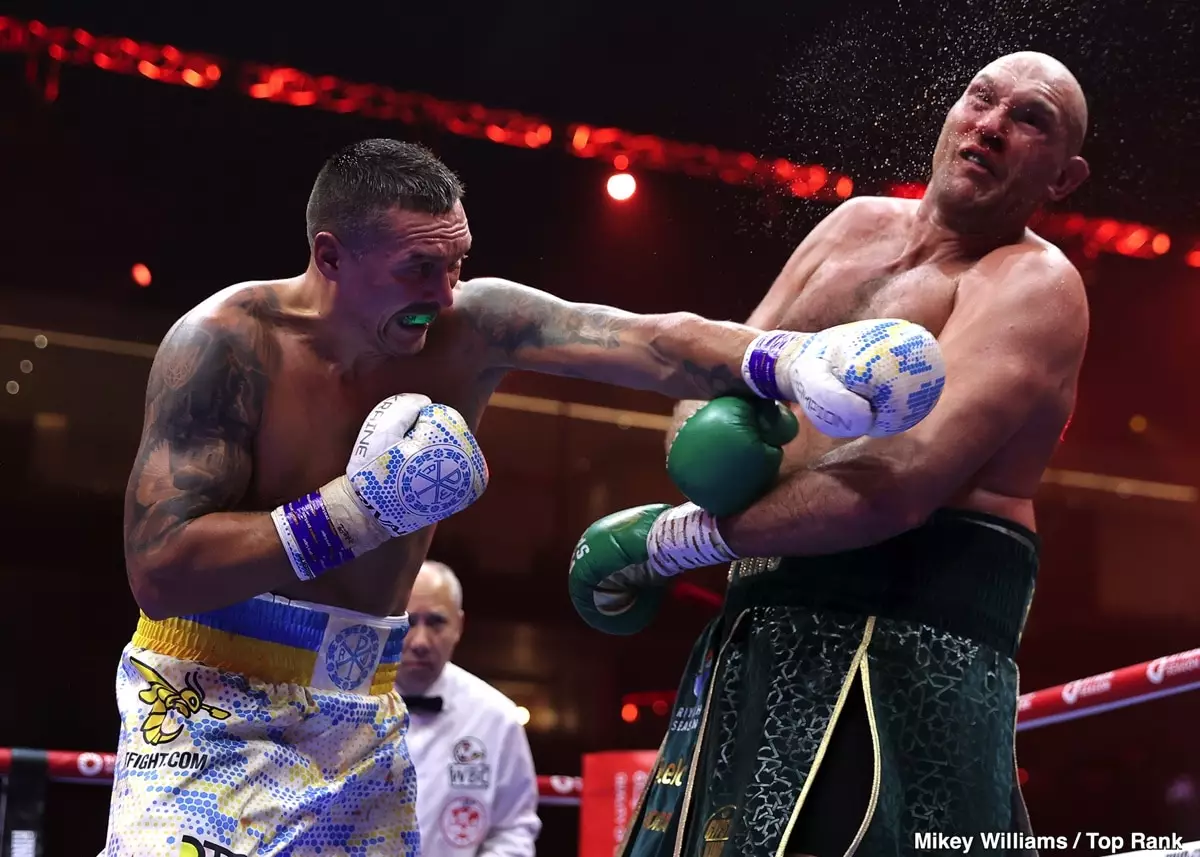Tyson Fury, the brash and charismatic heavyweight champion, finds himself entrenched in a complex web of denial following his contentious loss to Oleksandr Usyk. This past May, the boxing world witnessed what many argued was a definitive performance by Usyk, yet Fury insists the outcome was marred by “opinionated” judges. His refusal to confront the reality of that defeat raises questions not only about his mental state but also about his upcoming rematch on December 21st in Riyadh, Saudi Arabia. Can a fighter who clings so fervently to misplaced self-assurance truly prepare himself for another clash with a formidable opponent?
Fury’s claims that he believes he won that bout—having watched the fight over a thousand times—sounds more like a coping mechanism than an objective analysis of the match. He contends that his loss hinged on a single ninth-round misstep, hinting at a delusion that could jeopardize his mental preparedness for the rematch. This persistent cling to an alternate reality may serve only to undermine his confidence instead of bolstering it.
At 36 years old, Fury’s resilience and fighting spirit are under scrutiny. Whereas once he was hailed as an unbeatable force, his recent performances have been lackluster at best. Many argue that his past triumphs have been shadowed by a series of questionable matchups that further serve to enhance his inflated reputation. The controversial decision against Francis Ngannou left many spectators stunned; what was touted as a “win” now hangs like a dark cloud over his record. Realistically, if anyone were to dissect the situation critically, Fury could very well hold an unflattering 0-2 streak were it not for these dubious judges’ decisions.
It’s essential to understand that the roots of Fury’s decline may not solely stem from the inevitable aging process that every athlete must contend with; rather, they hint at a lack of self-awareness and an unwillingness to grow from mistakes. The way forward for a fighter typically involves acknowledged losses, an honest appraisal of weaknesses, and a willingness to improve. Fury, however, appears rooted in a fantasy that could lead him straight into the jaws of another defeat.
As Fury prepares to lace up his gloves once again, many in the boxing community have placed their bets squarely on Usyk. The unified heavyweight champion boasts an impressive undefeated record of 22-0, justifying the sentiment with every ounce of talent he continues to demonstrate in the ring. Fury’s prior performance showcased Usyk’s technical superiority, rendering the rematch a dangerously precarious endeavor.
Several significant factors play against Fury as he approaches this bout. First and foremost, any semblance of confidence he might have is suspect—imbued more with bravado than belief. Additionally, age and physical conditioning are pivotal. Observers cannot help but note that Fury seems to have added weight and is appearing less physically prepared compared to his once lean and focused physique. The distractions of a lavish lifestyle often detract from the discipline required for high-stakes boxing, and Fury’s candid remarks about enjoying the fruits of his success further substantiate this concern.
True growth in any profession requires confronting truths, however uncomfortable they may be. Admitting to past failures—including defeats to Usyk and Ngannou—could provide Fury with a clearer perspective as he laces up for the rematch. Self-delusion can create a dangerous path, particularly when an athlete finds themselves facing significant challenges they aren’t truly prepared for. Right now, Fury appears more suited for a gentler approach to boxing than the fierce competition that lies ahead.
With a roster of heavyweights currently buzzing in the sport, it’s increasingly clear that many athletes could threaten Fury’s legacy. Names like Anthony Joshua, Joseph Parker, and Jared Anderson loom large, ready to capitalize on any sign of weakness. Thus, the question remains: will Tyson Fury approach this rematch with a mindset grounded in reality, or will he again retreat into the dark corners of denial?
In the end, boxing today often emphasizes resilience; it is the ability to adapt and learn from experiences that sustains champions in the long run. Tyson Fury faces the pivotal decision point of whether to embrace reality and refocus his training and mental fortitude—or continue on the road of denial, risking not only his legacy but also his standing among the heavyweight elite. The outcome is uncertain, but the stakes are undeniably high.

